1. Principles
1.1. Actions based on beliefs will produce results beyond your imagination
1.2. It will not really make sense to a logical mind, but it can wake up your heart to believe!
1.3. The generous soul will be made rich, and he who waters will be watered himself.
1.4. If you're withholding your time, talent, and treasures from the dream of God's design for your life, you're missing the joy that comes from serving others, the joy in seeing God's hope for them come to pass. No personal achievement can measure up to that!
2. Caveats
2.1. those who profess to be Christians must pay attention to the spiritual law of sowing and reaping.
2.2. King David experienced serious psychosomatic trouble as a result of his sin.
2.3. If Israel did serve other gods, the holy jealousy of God would manifest and he would deal with his people severely.
2.4. God will put some fear of God into our hearts as we examine the way God dealt with his people and disciplined them when they sinned against him.
2.5. Once again, we must ask: When we sin, do we think about the implications of our sin, in our own lives as well as in the lives of our children, our children’s children, and their children in the generations to come? What arrogance, what blindness, what shortsightedness we display when we give in to sin, as David did!
3. Implications
3.1. Before all these things happened, I am sure David the believer had thought that he could get away with it all—a little sowing of evil, a little lust, a little indulging in the evil pleasure of adultery, a little arrogance, a little lack of listening to the word of God, a little laziness, a little injustice—with no consequences. But what was God saying through Nathan to David? "No, David. You sowed evil and you shall reap the consequences. You threw a stone into the pond and the ripples will be many, affecting not only you but your family and your kingdom."
3.2. One sin will produce a terrible chain reaction of consequences. First, it will work against you, but then it will work against your children and your children’s children—against your whole family and beyond. Then it will work against your profession, your economic status, and your health. Even one sin will affect every aspect of your life.
3.3. As a son of God, David had sinned, and God had to chasten him. Why does God give pain to his children? To produce holiness in them. That is why David had to be disciplined, even though it was painful.
3.3.1. As we read the story of Amnon, we see that the sexual sin of the father manifested in his son, not in terms of adultery, but something worse than that—incest and rape. Did David think about this kind of thing when he secretly sinned with Bathsheba? Yes, David indulged in what he probably considered a little lust, but I am sure that he never considered that a time would come when his own son would manifest this trait in greater grossness. Full of lust, Amnon devised a scheme and raped Tamar, who was his own sister through another mother.
3.3.2. Tamar was the full sister of another son named Absalom, who didn’t say anything at the time, but later invited Amnon to come for a feast given by Absalom during the time of sheep-sheering. This was a plan by Absalom to murder Amnon, and Amnon was cut down at the feast. Do you think David thought about these things when he committed adultery with Bathsheba and secretly arranged to have Uriah murdered? No! David’s actions were totally self-centered. He acted blindly, not foreseeing any repercussions in the generations to come.
